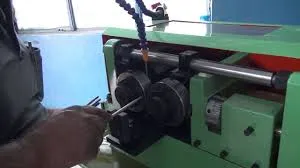
-
 Afrikaans
Afrikaans -
 Albanian
Albanian -
 Amharic
Amharic -
 Arabic
Arabic -
 Armenian
Armenian -
 Azerbaijani
Azerbaijani -
 Basque
Basque -
 Belarusian
Belarusian -
 Bengali
Bengali -
 Bosnian
Bosnian -
 Bulgarian
Bulgarian -
 Catalan
Catalan -
 Cebuano
Cebuano -
 Corsican
Corsican -
 Croatian
Croatian -
 Czech
Czech -
 Danish
Danish -
 Dutch
Dutch -
 English
English -
 Esperanto
Esperanto -
 Estonian
Estonian -
 Finnish
Finnish -
 French
French -
 Frisian
Frisian -
 Galician
Galician -
 Georgian
Georgian -
 German
German -
 Greek
Greek -
 Gujarati
Gujarati -
 Haitian Creole
Haitian Creole -
 hausa
hausa -
 hawaiian
hawaiian -
 Hebrew
Hebrew -
 Hindi
Hindi -
 Miao
Miao -
 Hungarian
Hungarian -
 Icelandic
Icelandic -
 igbo
igbo -
 Indonesian
Indonesian -
 irish
irish -
 Italian
Italian -
 Japanese
Japanese -
 Javanese
Javanese -
 Kannada
Kannada -
 kazakh
kazakh -
 Khmer
Khmer -
 Rwandese
Rwandese -
 Korean
Korean -
 Kurdish
Kurdish -
 Kyrgyz
Kyrgyz -
 Lao
Lao -
 Latin
Latin -
 Latvian
Latvian -
 Lithuanian
Lithuanian -
 Luxembourgish
Luxembourgish -
 Macedonian
Macedonian -
 Malgashi
Malgashi -
 Malay
Malay -
 Malayalam
Malayalam -
 Maltese
Maltese -
 Maori
Maori -
 Marathi
Marathi -
 Mongolian
Mongolian -
 Myanmar
Myanmar -
 Nepali
Nepali -
 Norwegian
Norwegian -
 Norwegian
Norwegian -
 Occitan
Occitan -
 Pashto
Pashto -
 Persian
Persian -
 Polish
Polish -
 Portuguese
Portuguese -
 Punjabi
Punjabi -
 Romanian
Romanian -
 Russian
Russian -
 Samoan
Samoan -
 Scottish Gaelic
Scottish Gaelic -
 Serbian
Serbian -
 Sesotho
Sesotho -
 Shona
Shona -
 Sindhi
Sindhi -
 Sinhala
Sinhala -
 Slovak
Slovak -
 Slovenian
Slovenian -
 Somali
Somali -
 Spanish
Spanish -
 Sundanese
Sundanese -
 Swahili
Swahili -
 Swedish
Swedish -
 Tagalog
Tagalog -
 Tajik
Tajik -
 Tamil
Tamil -
 Tatar
Tatar -
 Telugu
Telugu -
 Thai
Thai -
 Turkish
Turkish -
 Turkmen
Turkmen -
 Ukrainian
Ukrainian -
 Urdu
Urdu -
 Uighur
Uighur -
 Uzbek
Uzbek -
 Vietnamese
Vietnamese -
 Welsh
Welsh -
 Bantu
Bantu -
 Yiddish
Yiddish -
 Yoruba
Yoruba -
 Zulu
Zulu
Exploring Different Variations of Thread Rolling Machines in Manufacturing Industries
Understanding Different Types of Thread Rolling Machine Factories
Thread rolling is a popular manufacturing process used to produce threads on cylindrical and non-cylindrical components. It typically offers superior mechanical properties, such as increased tensile strength and improved fatigue resistance, compared to conventional methods like cutting or machining. In the realm of thread rolling, various types of machines play pivotal roles, and understanding these types can help businesses make informed decisions when selecting machinery for their production needs.
1. Flat Die Thread Rolling Machines
Flat die thread rolling machines employ two flat dies to form threads onto a workpiece by lateral movement. These machines are particularly effective for producing single or multiple threads on cylindrical parts. Flat die machines are generally compact, making them suitable for smaller shops and production lines that need to produce a variety of thread sizes. Additionally, they are capable of handling long lengths of material, allowing for versatile applications across different industries.
2. Cylindrical Thread Rolling Machines
Cylindrical thread rolling machines use rotating dies that match the shape of the desired thread profile. This type of machine can produce external and internal threads efficiently and is often used in mass production settings. The cylindrical machines allow for a higher degree of precision and can accommodate a wider range of thread sizes. Their robust design makes them suitable for heavy-duty applications in sectors such as automotive, aerospace, and construction.
3. Rotary Thread Rolling Machines
types of thread rolling machine factories

In rotary thread rolling machines, the workpiece is fed between two or more rotating dies. This setup is highly efficient for bulk production and can achieve high rates of output. Rotary machines are designed to work with a variety of materials, including soft metals and plastics, making them adaptable for various thread rolling requirements. They provide a seamless manufacture of threads with superior surface finishes, which is crucial for applications demanding high reliability.
4. Multifunctional Thread Rolling Machines
Modern manufacturing demands a high degree of versatility, and multifunctional thread rolling machines cater to this need. These machines can perform multiple operations like threading, chamfering, and even embossing in a single setup. They utilize advanced CNC technology, allowing operators to program different thread sizes and forms as required. This flexibility reduces production time and enhances efficiency, making them a valuable asset for manufacturers looking to optimize their processes.
5. Computer Numerical Control (CNC) Thread Rolling Machines
CNC thread rolling machines represent the peak of technological advancement in this field. Equipped with programmable interfaces, these machines can execute complex threading operations with minimal human intervention. CNC machines allow manufacturers to produce a wide variety of thread sizes and patterns, all while maintaining stringent tolerances expected in high-precision industries. The initial investment may be higher, but the long-term savings achieved through lower labor costs and increased production rates make CNC thread rolling machines an attractive option for many factories.
Conclusion
The variety of thread rolling machines available caters to diverse manufacturing needs. From flat die machines best suited for small-scale operations to high-tech CNC machines designed for mass production, understanding these options helps businesses find the right solution. In addition to the type of machine, the choice may also depend on factors such as production volume, material properties, and precision requirements. As industries continue to evolve, so too will the technology behind thread rolling machines, offering even greater efficiency and capabilities in the future. Investing in the right machinery can significantly impact a factory’s operational success and product quality.
